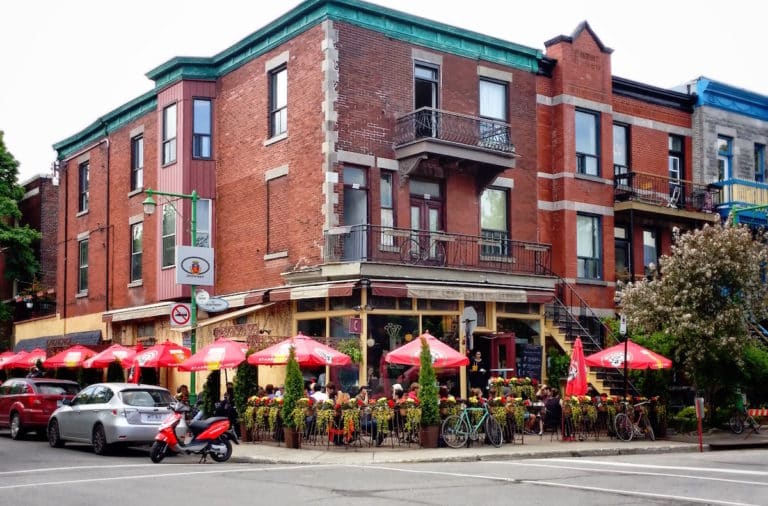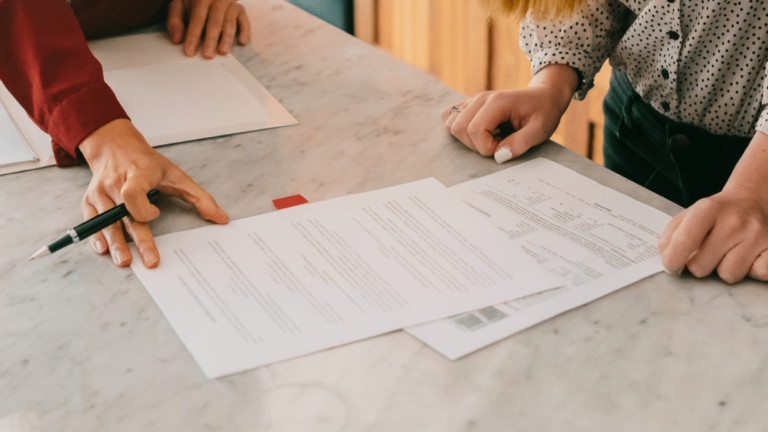Few things compare to the fluttery feeling in your stomach the day you close on your home. After all, home loans often require homebuyers to have down payments and closing costs in hand — and those can be some hefty chunks of change!
You might be wondering how long it takes to reach various milestones in the homebuying journey. How many days does it take to get from application to closing? How long does it take to move from the appraisal process to closing? Each milestone gets you closer to finally getting the keys to your new home, but that may not stop you from nervously eyeballing the calendar.
So, how long does it take to close on a house? This article goes over how long it takes to get pre-approved, find a home and close on a house. The underwriting process you undertake before closing is an important step!
Let’s take the mystery out of the process and help you work toward a seamless close.
Processes of House Closing
When you go through the house closing process, each individual step can take time. The processes include:
- Application and disclosures: Filling out the application and signing your Initial Disclosure Package is the first step to keep your loan application moving. The lender is required to provide the Initial Disclosure Package to you within three days of your application. These disclosures outline the terms of the mortgage and contain both federal- and state-required mortgage disclosures.
- Appraisal: The appraisal can take one to two weeks to complete, depending on the appraiser’s schedule and the busyness of the real estate market in your area.
- Underwriting: When a loan application is submitted to the lender for approval, it goes through a comprehensive underwriting process. Underwriting is where all of the information in your application is verified, and your eligibility is determined. The amount of time varies and depends on the lender. When underwriting is complete, the loan gets approved by the lender and the borrower becomes “clear to close.”
How Long Does Underwriting and Closing Take?
We’ll take a quick look at how long closing takes from each step in the homebuying journey. Keep in mind that time to close can vary depending on individual lenders and personal borrower profiles.
From Mortgage Application Day to the Closing Day
From the date you apply for a mortgage loan to the date you close, it typically takes 30 to 45 days.
Close in as few as 14 business days.
With Morty’s Quick Close Advantage,
you can stand out from the competition with an expedited closing process.
See if you’re eligible for a quicker close.
How Soon Can You Close on a House After Appraisal?
The appraised value determines the fair market value of a home, conducted by a professional appraiser. A professional appraiser usually completes on-site inspections by evaluating a property alongside comparable homes in the area. They write up an appraisal report, which outlines what your lender can loan to purchase the property.
If the appraisal comes back aligned with the appraised value, you may be able to close on your loan within two weeks. However, this time frame doesn’t account for other issues that may arise, such as problems found during a home inspection.
How Long Does The Closing Day Take?
On closing day, you sign your final paperwork. It can take about an hour to get through the full list of closing day to-dos.
Closing Day Processes
Let’s take a quick look at some of the things that happen on closing day:
- Sign and review documents: Your documents should mirror what’s on the Loan Estimate and Closing Disclosure, which outline all the details about your loan including: purchase price, loan fees, interest rate, taxes and insurance, closing costs and more.
- Pay your total funds to close: Your total funds to close includes your closing costs and your down payment. Closing costs involve various fees.
- Transfer of the title: Transferring title refers to a deed transfer of a title between parties. This transfers real ownership of the property from one party to another.
Length of Time it Takes to Close
If you’re planning to get a mortgage, it’s understandable that you’ll want to close on your mortgage fast. Let’s take a closer look at whether a fresh loan or refinancing makes a difference in your closing timeline and whether the type of mortgage makes a difference.
Time to Close with a New Loan
The time to close with a fresh loan takes 30 to 45 days, but will ultimately depend on your lender’s timeline and assumes that all processes go smoothly.
Time to Close on Refinancing
The time it takes to refinance a mortgage depends on several moving parts, such as credit checks, appraisals and your lender’s capacity to handle loans. This process can take up to 45 days, with an average of 30 days to complete.
Mortgage Closing Times by Loan Type
FHA loans, conventional loans and VA loans take between 30 and 45 days to close. Consider asking your lender or broker for an estimate of how long it will take to close on your loan.
Time to Close When Buying a House with Cash
Buying a house with cash can offer several benefits — especially in a tight housing market. You don’t have to make a mortgage payment every month and you have immediate equity in your home.
However, according to the St. Louis Fed, the median home price in Q2 2021 was $374,900 – many don’t have the cash on hand to buy a house this way. But for those who do, buying a house with cash can take as few as two weeks – the time title and escrow companies need to check for liens, get an inspection and finalize all details.
What Could Delay Your House Closing?
A number of things could occur to delay your house closing. Let’s take a look at some possibilities and when they might occur.
Delay in Down Payment
You will need to bring cash to close the mortgage deal. Failure to provide the necessary funds could be a major reason to delay your closing.
Credit History Issue of the Buyer
If your credit score or income is lower, the underwriter might change your eligibility to borrow or reject your application outright.
Hiding Details From Lender
Sometimes borrowers try to brush a bankruptcy under the rug, cover up business losses or neglect to mention a job change. Fudging these types of details on your application can and will delay your closing.
Low Appraisal
An appraisal could come in lower than the purchase price or what you plan to borrow for a house. In this instance, a lender could delay or even deny a loan application.
Repair Requirements
Compared to an appraisal, a home inspection offers a more in-depth examination of the condition of the home, including major home systems, the roof and foundation.
An inspection is conducted prior to signing a contract or shortly thereafter, often with an inspection clause. The clause offers buyers an “out” if the inspector finds issues during the home inspection. Problems with the inspection may extend the negotiation time and delay closing – or even keep a buyer from moving forward with the home purchase.
Difficulty Insuring the Property
Mortgage lenders require homebuyers to purchase homeowners insurance, but insurability problems can push back closing. For example, if a home has a faulty fireplace, an insurance company may be unwilling to insure the home until the fireplace gets fixed.
Title Issues
Issues with the title can also derail your closing. Title defects could include tax liens, easements, mechanic’s liens, unpaid HOA fees, probate, lawsuits and claims on title.
Unusually Large Deposits or Withdrawals
Unusual activity in your bank account – including large withdrawals or deposits – could cause your lender to hit the “pause” button. They will likely have questions about where the money came from or where it went.
Interest Rate Lock Expiry
If your rate lock expires before closing, you’ll have to re-lock a rate in order to close the loan. If rates increased during the lock period, your rate will likely go up. But if rates have fallen, you may not get a lower rate. You can only re-lock at current market pricing if you let the rate stay expired for a certain period of time (typically 30 days with most lenders).
Incomplete Loan Application
Failure to complete your loan application can also delay your closing. Make sure you carefully fill out every part of the loan application so your lender can review your application in full from the start.
What Happens When You Don’t Close on a House on Time?
The purchase contract (which is binding) outlines the details of a home sale transaction. At a minimum if you miss the closing date, the purchase contract expires and you no longer have an active contract with the other party.
The typical action is to extend the closing date, but the seller might not agree to do so. Alternatively, you may have to pay a flat fee or a portion of the seller’s mortgage to compensate them for keeping the property longer than planned.
How Long Can a House Closing Be Delayed?
There’s no limit to the number of times a house closing can become delayed. Depending on your purchase contract and who caused the delay, you may have to pay the seller a penalty for every late closing day. The seller may refuse to wait, however, and the deal could fall through.
What if the Lender Does Not Close on Time?
It’s a good idea to choose a lender that you can trust so you don’t face negative consequences. You don’t want to lose out on a home due to a lender’s mishap. With a mortgage marketplace like Morty, you can find all the best lender options, all in one place.
Steps to Speed Up Closing on a House
How can you speed up the closing process? To start, you can familiarize yourself with the paperwork you need to submit so that you can ensure accuracy in your application. Respond to documentation requests from your mortgage broker or lender as soon as possible so you don’t accidentally delay your mortgage.
You’ll also want to avoid taking on new credit or loans – and don’t plan to change jobs during this time, either. Finally, try to avoid switching lenders during the process; changing lenders often lengthens the time to close for homebuyers.
Pre-Approved Mortgage
Consider getting pre-approved to speed up the closing process. It can help expedite things because most of your information will already exist in your broker or lender’s system.
Digital, Remote or Virtual Closing and Hybrid Closing
Closing on your home virtually has become more popular, especially in light of COVID-19. Fully online and hybrid allows you to close from anywhere (when permitted by state law), and offers other benefits such as: faster document delivery; shorter signing appointments; a lower risk of missing signatures or documents; less notary error; and a greener, more environmentally friendly option than using paper.
- Remote Online Notarization (RON): Fully online closing involves joining a video conference through an app like Zoom. Payments for closing costs occur through electronic transfer, and mortgage documents are then signed electronically as well.
- Hybrid closing: With this option, you’ll sign a portion of the documents electronically, while other documents are notarized in-person. This requires an in-person meeting between you and a notary public.
- In-Person Electronic Notarization (IPEN): This type of closing requires a face-to-face, in-person meeting – but you will still sign the closing documents electronically.
How a Mortgage Closing Works
How exactly does a mortgage closing work? What happens just prior to and during a mortgage closing? Let’s walk through some steps that occur outside of the underwriting and eligibility process:
- Negotiation of the offer: You and the seller go back and forth to negotiate the final price of the home in this step.
- Contract signing: Buyers and sellers sign a purchase agreement — a legal document that outlines the terms and conditions of a real estate transaction.
- Putting money in escrow: The escrow or title company will take care of your deposit (also known as “good faith money”) which you pay for at the time of the purchase agreement.
- Title review: A title company will make sure nobody else can lay claim to the home.
- Home inspection: You may find that the property needs to undergo necessary repairs after a home inspection.
- Appraisal: The home must undergo an appraisal, which reveals the fair market value of the property.
- Renegotiation: If the appraisal comes back low or the inspection reveals certain issues, you could renegotiate the price of the home with the seller.
- Final walkthrough: Performing the final walkthrough means you go through the entire house, room by room and double-check that all repairs were implemented and everything seems in order.
FAQs About House Closings
Can I close on a house virtually without being present?
Yes – in many states, you can close on a house virtually without being present.
Can a loan be denied after closing?
Yes, though it’s rare. After your loan has been labeled “clear to close,” your lender will update your credit and check your employment status. If major changes have occurred, it could impact your loan.
What time of the month should you close on a house?
Closing as late in the month as possible can be beneficial if you want to build up as much money as possible for final closing costs. However, the later you close, the sooner you’ll need to make your first mortgage payment.
With near-instant pre-approvals for mortgage loans and a fully online marketplace, Morty automates the mortgage process for you. We can walk you through the process and provide support at every step of the way until you get the keys to your dream home.







